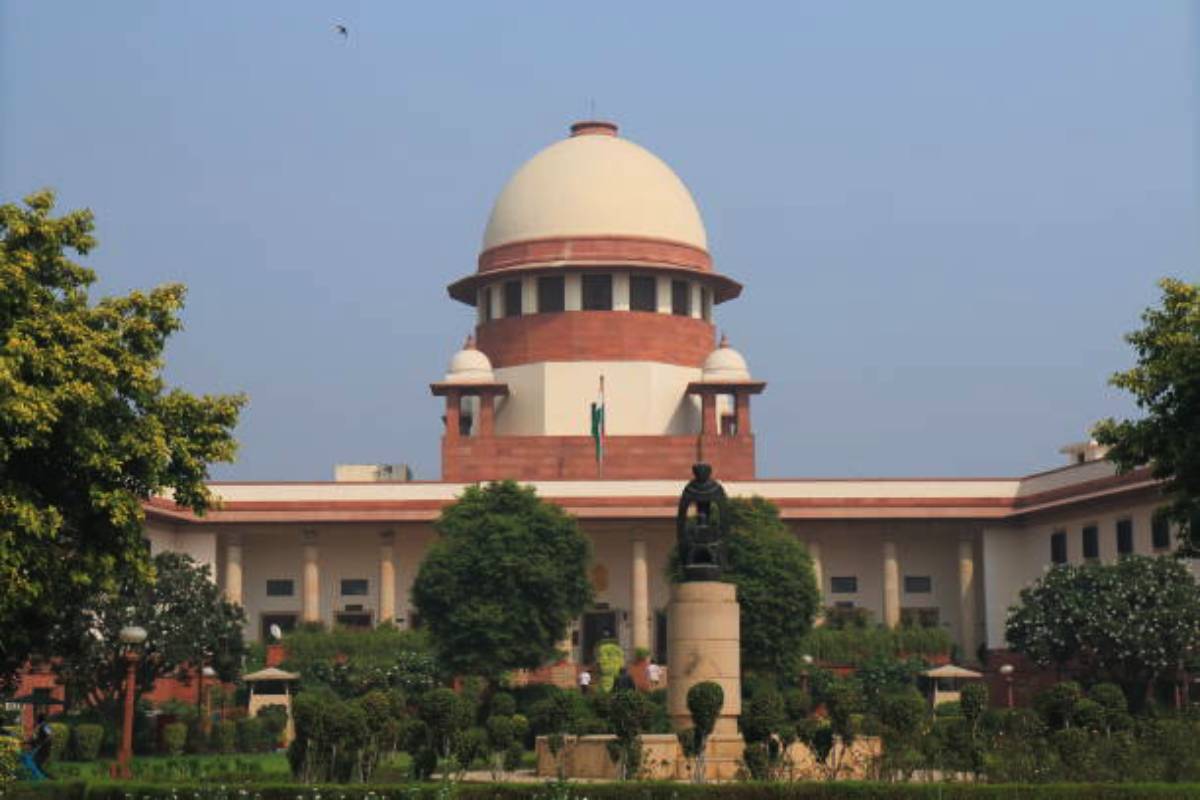Centre declares Tehreek-e-Hurriyat unlawful association under UAPA
Union Home Minister Amit Shah cited the outfit’s involvement in forbidden activities to separate J&K from India and establish Islamic rule as reason for the action.
The remarks of the apex court came while it was hearing appeals of Delhi Police challenging the Delhi High Court’s June 15, 2021, order granting bail to PinjraTod activists Devangana Kalita and Natasha Narwal, and Jamia student Asif Iqbal Tanha in the Delhi riots case.

[Photo : iStock]
The Supreme Court on Tuesday said that it doesn’t believe in unnecessarily keeping people behind bars while hearing the pleas filed by the Delhi Police against the bail granted to three student activists in a case of the 2020 Delhi riots case.
“We don’t believe in unnecessarily keeping people behind the bars,” said a bench of Justices Sanjay Kishan Kaul, Abhay S Oka and JB Pardiwala. Justice Kaul observed that spending hours hearing the bail petitions in the case was a “complete wastage” of time of the Delhi High Court.
The remarks of the apex court came while it was hearing appeals of Delhi Police challenging the Delhi High Court’s June 15, 2021, order granting bail to PinjraTod activists Devangana Kalita and Natasha Narwal, and Jamia student Asif Iqbal Tanha in the Delhi riots case.
Advertisement
The bench posted the case for hearing on January 31 while noting that the Solicitor General, who was to represent Delhi police in the matter, is arguing before a Constitution bench in a case.
Delhi police had approached the apex court against the High Court order of granting them bail. The top court then refused to cancel the bail granted to three student activists in the northeast Delhi riots case, but made it clear that the High Court judgment will “not to be treated as precedent by any court” to give similar relief.
The Delhi police had contended that the Unlawful Activities (Prevention) Act (UAPA) has been “turned upside down” by the High Court while granting bail in the case and that the issue can have pan-India ramifications. The three students were arrested in May 2021 under the stringent UAPA.
The Delhi police while seeking setting aside of bail verdicts had stated before the top court that the High Court “not only conducted a mini-trial but has also recorded perverse findings which are contrary to record” and almost decided the case while adjudicating bail pleas.
The High Court had on June 15 granted bail to the three student-activists saying in anxiety to suppress dissent the State has blurred the line between the right to protest and terrorist activity and if such a mindset gains traction, it would be a “sad day for democracy”.
The High Court had also observed that the right to protest cannot be termed as a ‘terrorist act’ under the UAPA. The case relates to the last year’s communal violence in northeast Delhi during protests against the Citizenship Amendment Act (CAA).
Advertisement